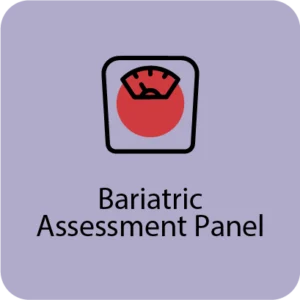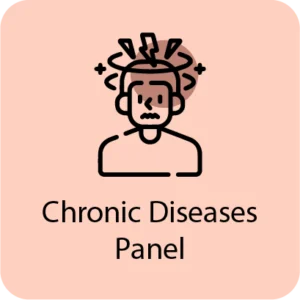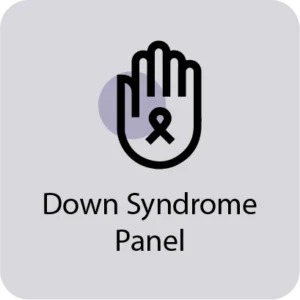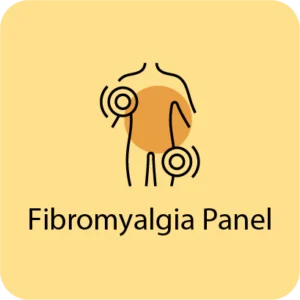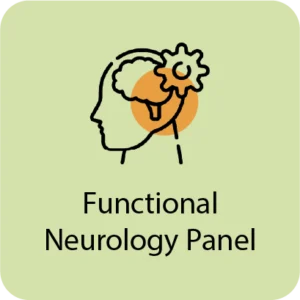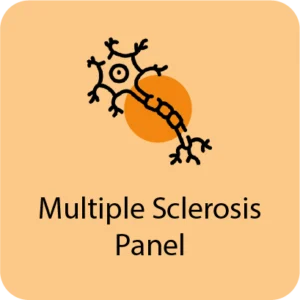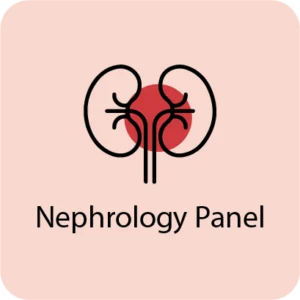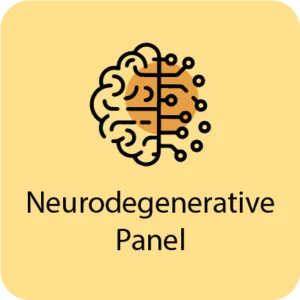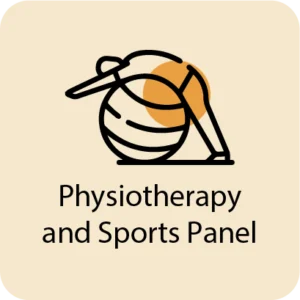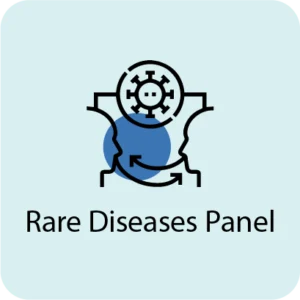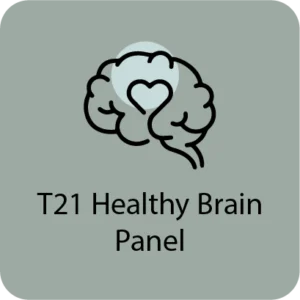Physiotherapy and Sports Genetic Panel
Are you tired of generic workout plans that don’t take into account your unique genetic makeup? Look no further. With the advancement of science and technology, physiotherapy now has a promising new tool – the sports genetic panel. This cutting-edge, personalized approach to fitness and recovery is revolutionizing the way athletes and fitness enthusiasts train.
By analyzing your genetic information, a sports genetic panel can provide valuable insights into your body’s response to exercise, injury risk, and recovery capabilities. This information can help physiotherapists tailor workout routines and rehabilitation programs specifically to your genetic profile, maximizing your performance and minimizing the risk of injury.
But this is not just for elite athletes. Sports genetic panels are accessible to anyone looking to get the most out of their workouts. Whether you’re a professional athlete looking to optimize your training or a beginner just starting out, understanding your genetic predispositions can be a game-changer in achieving your fitness goals.
Say goodbye to one-size-fits-all approaches. Embrace the power of physiotherapy and sports genetic panels to unlock your true potential. It’s time to take your training to the next level.
What is a Physiotherapy and Sports Genetic Panel?
A physiotherapy and sports genetic panel is a comprehensive analysis of your genetic information to determine how your body responds to exercise, assess injury risk, and identify recovery capabilities. This panel examines specific genetic markers that are associated with athletic performance, injury susceptibility, and recovery potential.
The genetic information obtained from the panel provides valuable insights into your body’s unique traits and characteristics, enabling physiotherapists to develop personalized treatment plans tailored to your specific needs. It goes beyond the traditional “one-size-fits-all” approach to exercise and rehabilitation, taking into account your genetic makeup to optimize your training and minimize the risk of injury.
Understanding the Benefits of a Physiotherapy and Sports Genetic Panel
The benefits of a physiotherapy and sports genetic panel are numerous and game-changing for athletes and fitness enthusiasts alike. By understanding your genetic predispositions, you can:
- Maximize Performance: The analysis of your genetic information allows physiotherapists to identify genetic markers associated with enhanced athletic performance. This enables them to design training programs that are specifically tailored to your genetic profile, optimizing your potential for success.
- Minimize Injury Risk: Certain genetic markers are associated with an increased risk of specific types of injuries. By identifying these markers through a sports genetic panel, physiotherapists can develop preventive strategies and exercise modifications that reduce the risk of injury during training or competition.
- Optimize Recovery: Your body’s ability to recover from exercise and injuries is influenced by genetic factors. By analyzing your genetic information, physiotherapists can gain insights into your recovery capabilities and develop targeted rehabilitation programs that expedite the healing process and minimize downtime.
- Personalized Treatment: A sports genetic panel provides physiotherapists with a deeper understanding of your body’s unique traits and characteristics. This allows them to create personalized treatment plans that address your specific needs, ensuring that you receive the most effective and efficient care possible.
- Long-Term Health Management: The information obtained from a sports genetic panel can be used to guide long-term health management strategies. By understanding your genetic predispositions, you can make informed decisions about lifestyle choices, injury prevention measures, and training modifications that support your overall health and well-being.
Incorporating the findings of a physiotherapy and sports genetic panel into treatment plans can have a significant impact on your training outcomes and overall performance. Let’s explore how these panels work and the key genetic markers that are analyzed.
How Does a Physiotherapy and Sports Genetic Panel Work?
A physiotherapy and sports genetic panel begins with a simple DNA sample, usually collected through a saliva or blood sample. This sample is then analyzed to identify specific genetic markers that are relevant to athletic performance, injury risk, and recovery capabilities.
The analysis of these genetic markers provides valuable insights into your body’s response to exercise, including factors such as muscle strength, endurance, flexibility, and injury predisposition. By understanding these genetic factors, physiotherapists can make more informed decisions about your treatment and training programs.
The process of analyzing the genetic markers involves sophisticated laboratory techniques and advanced genetic sequencing technology. These technologies allow scientists to examine specific regions of your DNA that are associated with athletic performance and injury risk.
Interpreting the Results of a Physiotherapy and Sports Genetic Panel
Once the genetic analysis is complete, the results are interpreted by a team of experts who specialize in sports genetics. They analyze the data and provide detailed insights into your genetic predispositions, including strengths, weaknesses, injury risk factors, and recovery capabilities.
The interpretation of the results takes into account both individual genetic variations and the interaction between multiple genetic markers. This comprehensive analysis provides a holistic understanding of your genetic profile and its implications for your training and rehabilitation.
Incorporating the Findings of a Physiotherapy and Sports Genetic Panel into Treatment Plans
The findings of a physiotherapy and sports genetic panel are integrated into your treatment plan to create a personalized approach to your training and rehabilitation. Physiotherapists use the information obtained from the genetic analysis to tailor exercise programs, modify training intensity, and develop targeted rehabilitation strategies.
For example, if the analysis reveals a genetic predisposition for a specific type of injury, physiotherapists can design preventive exercises and modifications to reduce the risk of injury during training. Similarly, if the analysis indicates a slower recovery rate, physiotherapists can develop targeted rehabilitation programs that expedite the healing process and minimize downtime.
The personalized approach based on your genetic profile ensures that your treatment plan is optimized for your specific needs, maximizing your performance potential and reducing the risk of injury.
Case Studies Showcasing the Effectiveness of a Physiotherapy and Sports Genetic Panel
Numerous case studies have demonstrated the effectiveness of incorporating a sports genetic panel into physiotherapy treatment plans. These case studies highlight the impact of personalized genetic information on training outcomes and injury prevention.
One notable case study involved a professional athlete who had recurrent knee injuries. Through a sports genetic panel, it was discovered that the athlete had a genetic predisposition for a specific type of knee injury. Armed with this information, the physiotherapist developed a targeted exercise program that focused on strengthening the muscles around the knee and modifying training techniques. As a result, the athlete experienced a significant reduction in knee injuries and was able to continue competing at the highest level.
Another case study focused on a beginner runner who struggled with persistent shin splints. The sports genetic panel revealed a genetic marker associated with a higher risk of stress fractures. With this information, the physiotherapist developed a gradual training program that incorporated strength training and proper running techniques. The runner was able to overcome the persistent shin splints and achieve their running goals without further injury.
These case studies demonstrate the power of personalized treatment plans based on the findings of a sports genetic panel. By understanding your genetic predispositions, physiotherapists can develop targeted strategies that address your specific needs and optimize your training outcomes.
The Future of Physiotherapy and Sports Genetic Panels
The field of physiotherapy and sports genetics is constantly evolving, and the future holds great potential for further advancements. As technology continues to improve, the cost and accessibility of sports genetic panels are likely to decrease, making them more widely available to athletes and fitness enthusiasts.
In addition, ongoing research is uncovering new genetic markers associated with athletic performance, injury risk, and recovery capabilities. As our understanding of genetics deepens, physiotherapists will be able to provide even more personalized and effective treatment plans based on an individual’s genetic profile.
Choosing a Reliable Provider for Your Physiotherapy and Sports Genetic Panel
When considering a physiotherapy and sports genetic panel, it is crucial to choose a reliable provider with expertise in sports genetics and personalized treatment plans. Look for providers who have a track record of working with athletes and have a team of experts who specialize in sports genetics.
Make sure that the provider uses reputable laboratory facilities and adheres to strict ethical guidelines for handling genetic information. Additionally, consider the level of support and guidance provided by the provider. A reliable provider should offer comprehensive interpretation of the results, as well as ongoing support to help you incorporate the findings into your training and rehabilitation.
Conclusion: Enhancing Performance and Preventing Injuries with a Physiotherapy and Sports Genetic Panel
The integration of physiotherapy and sports genetic panels has revolutionized the way athletes and fitness enthusiasts approach training and rehabilitation. By analyzing your genetic information, physiotherapists can gain valuable insights into your body’s unique traits and characteristics, allowing them to develop personalized treatment plans that optimize your performance potential and reduce the risk of injury.
Whether you’re a professional athlete looking to maximize your training or a beginner aiming to achieve your fitness goals, a physiotherapy and sports genetic panel can provide the personalized guidance you need. Embrace the power of this innovative approach to unlock your true potential and take your training to the next level. Say goodbye to generic workout plans and hello to a personalized, science-backed approach to fitness and recovery.
| Categories | Conditions Observed |
|---|---|
| Content Yet to Receive | Content Yet to Receive |
What is Physiotherapy And Sports Genetic Panel?
The Physiotherapy And Sports Genetic Panel is a specialized genetic test designed to assess genetic factors influencing an individual’s response to physical therapy interventions, injury risk, athletic performance, and recovery processes.
How does genetic testing contribute to physiotherapy and sports performance?
Genetic testing provides insights into an individual’s genetic predispositions related to muscle composition, injury susceptibility, recovery potential, and response to specific exercise regimens, enabling personalized treatment plans and training strategies.
Who can benefit from undergoing the Physiotherapy And Sports Genetic Panel?
Athletes, sports enthusiasts, and individuals undergoing physical therapy for sports-related injuries can benefit from this panel to optimize training protocols, prevent injuries, and enhance overall athletic performance based on their genetic profile.
What specific genetic factors does the panel assess related to sports and physiotherapy?
The panel evaluates genetic variants associated with muscle strength, endurance, flexibility, injury risk genes, inflammation response, and recovery mechanisms, providing actionable insights for tailored rehabilitation and training programs.
Can the Physiotherapy And Sports Genetic Panel predict injury risk?
While it cannot predict injuries with certainty, the panel can identify genetic markers linked to increased susceptibility to certain types of injuries, allowing for proactive injury prevention strategies and targeted rehabilitation approaches tailored to an individual’s genetic profile.










